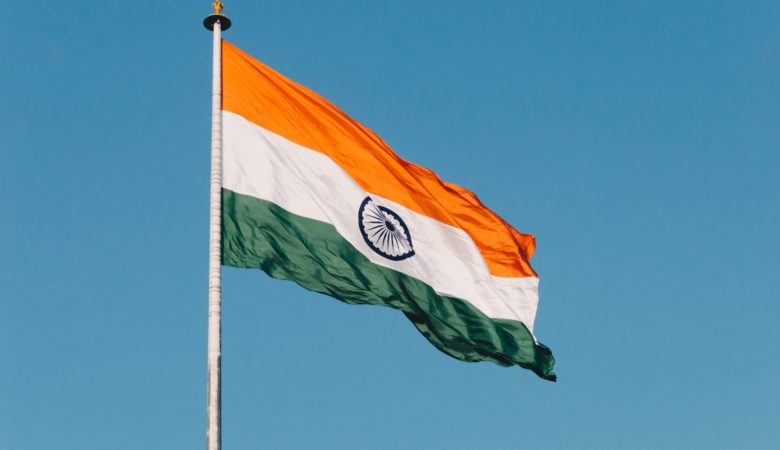Published on 08.07.2018 in Central Chronicle (English)
Oil is back on center stage of world trade. Last few weeks have seen extreme volatility in world trade that has resulted in hiked customs duties by US on imports from China, India and few other countries. In retaliation other nations too have slapped higher customs duties on US imports. The outlook on world trade is getting murkier with oil taking center stage.
OPEC (Organization of the Petroleum Exporting Countries) in its recently held meeting in Vienna had agreed to pump 1 million barrels more crude oil per day. It was expected that this decision would help contain the global crude prices in check but due to volatility in Iran and Venezuela in particular, the factual increase may not be more than 7,00,000 Barrels a day.
Higher crude prices before 2014-15 had impacted the economies of India and other developing nations adversely but we have had the benefit of soft crude prices since then and it helped government reduce the current account deficit and also helped in keeping the fiscal deficit in check. But situation now is again turning volatile. Oil is flaring and is now hovering around $ 75-80 a barrel. India imports 80% of its crude needs and Saudi Arabia, Iraq and Iran are major suppliers of crude to India. In fact Iran is 3rd largest supplier of crude to India and import volumes in FY 18 are at 10.4%.
Iran also exports 2.4 million barrels of crude oil to world per day. But now US has imposed sanctions on Iran and has warned all oil importing countries to stop crude oil imports from Iran. It has brought upward pressure on world crude prices which were stabilizing after the successful OPEC resolution at recently held Vienna meet.
India’s situation here is very delicate one as it has very cordial relations with Iran and would not like to abruptly end oil imports from Iran but pressure from US has reduced the chances for getting a full waiver on this issue. India and US have not had any consultations on any kind of possible exemptions on this issue so far but it is expected that India will not stop oil imports out rightly and will make an attempt to find an amicable solution to this riddle through detailed consultations with US. There is hope on this front as US treasury website has listed the conditions based on which a waiver or a partial waiver can be considered for oil imports from Iran.
Nikki Haley, the US envoy to UN, during her recent visit to India had called for crude oil cut from Iran but India showed reluctance to stop supplies from its old friend Iran and politely it was also conveyed to US envoy. However Trump administration has been tough in its message to India that any kind of non-stoppage of oil from Iran will invite sanctions against India. India is now preparing its calibrated response (Plan B ) to US sanctions against Iran for drastically reducing the oil imports from Iran or to a Zero Imports situation by November 2018. Although India does not recognize unilateral sanctions by US but would take careful steps in this direction so as not to antagonize its biggest trade partner and risk Indian exports to US. Oil Minister has been very categorical that government will protect the interest of India while importing oil from Iran.
It should not be forgotten that during previous rounds of sanctions against Iran, India was among few countries that had continued imports from Iran despite the choking of shipping, insurance and banking channels due to US and EU sanctions against Iran.
What are major implications of US sanctions against Iran: in Indian perspective there would be tougher times for India as it has to deal with tough US administration under Trump who simply does not hesitate to act. For India it was much easier to deal with Obama administration during the times of previous round of sanctions against Iran. This time even China is also protecting its interest being one of major importer of crude oil from Iran. India has to ready its Rupee payment mechanism for oil imports from Iran. India also must convey to US in clear terms that it will be extremely difficult to abruptly stop the crude imports from Iran. India must produce its case powerfully to cite case of its strong bilateral trade relationships which benefits the interests of both countries. Moreover India is now also in midst of many important and sensitive defense deals with US and large contracts by Indian airlines carriers have been given to US aviation giant Boeing. India being large economy can’t be just cowed down by unilateral dictates but India must tread very carefully and plead its case to get waiver from position of strength.
Another major implication for India would be flaring up of crude prices due to market volatility and crude oil may touch $ 100 a barrel in coming months and that would put extraordinary pressure on government exchequer to reduce Excise duties on petrol and diesel to keep the prices in check at retail level. Elections being just 10 months away, no government would be able to opt for tough measures and any reduction in Excise duties would cripple government finances as each Rupee reduction in Excise duty will amount to Rs 13,000 Crores losses of revenue. Higher oil prices at retail level will also stoke inflation and reduce GDP growth significantly. Crude price hikes are always fraught with danger of weakening Rupee and in scenario of Crude at $ 100, the slide of Rupee is inevitable. It is double whammy – weak Rupee and costly oil.
In India prices of petrol and diesel at retail level are deregulated but state oil companies follows the government dictate. Higher fuel prices create political controversies and people cry for reduction in fuel taxes which amount for almost 50% of retail prices now. It is indeed a tricky situation. Boiling oil at international level has serious repercussions for bilateral relations for India with US and on the other hand higher crude prices will lead to financial slippages. In such a scenario India must tread very carefully.



Leave a Reply